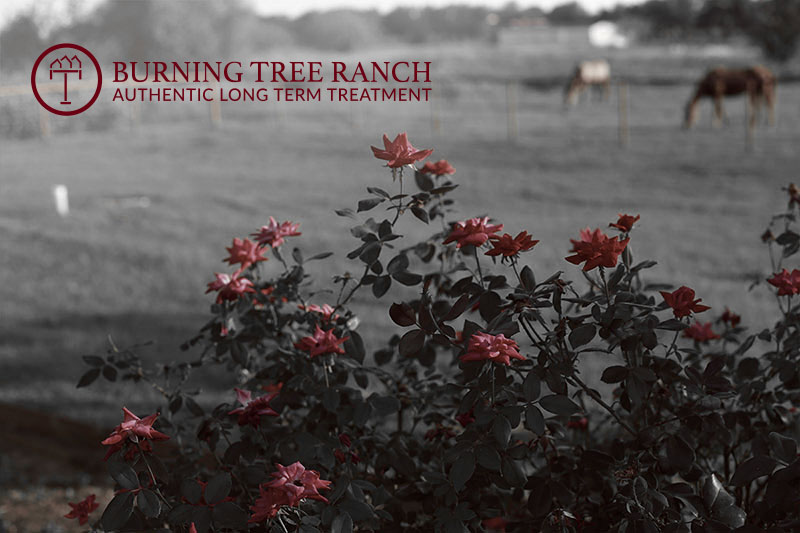ADHD & Substance Abuse in a Dual Diagnosis
At Burning Tree Ranch, we understand that attention deficit hyperactivity disorder, or ADHD, is a neurological disorder that can affect your productivity, motivation, mood and behavior. It is a disorder that impacts many different areas of working and living. Many people who struggle with attention deficit disorder also suffer from a co-occurring substance abuse disorder.
What are the Behaviors of ADHD?
Like any health condition, ADHD affects everyone differently. Although it is often characterized by struggles with attention, it manifests differently in children and adults as well as males and females.
Common Behaviors in Individuals with ADHD
- Inability to sit still
- Trouble concentrating
- Difficulty finishing tasks
- Hyperactive behavior
- Impulsive behavior
- Forgetfulness
ADHD doesn’t always produce cut-and-dry symptoms, though. The urge to start different tasks may be so strong in some people that it looks like mania. In others, it can create a sense of overwhelming paralysis, which can be confused with depression.
Many adults with ADHD struggle with job performance. However, if you also struggle with addiction, you may wonder if your forgetfulness and restlessness are related to substance abuse.

Breaking Barriers Achieving Greatness with ADHD
Many accomplished individuals throughout history have been speculated to have ADHD or have openly discussed their experiences with the condition, contributing to reducing stigma and showcasing how people with ADHD can achieve great success. Here are ten such figures:
- Michael Phelps – The most decorated Olympian of all time, Phelps has ADHD and has been open about how swimming helped him manage his symptoms. His success has inspired many people with ADHD.
- Albert Einstein – The theoretical physicist best known for his theory of relativity, is often posthumously speculated to have had ADHD. His unconventional thinking and focus on his work have been cited as characteristics that might align with ADHD traits.
- Leonardo da Vinci – The Renaissance artist and inventor displayed signs of what could be considered ADHD traits today, such as intense focus on interests, numerous unfinished projects, and a wide range of diverse interests.
- Ty Pennington – Known for his work as a television host for “Extreme Makeover: Home Edition,” Pennington has been open about his ADHD diagnosis. He has become an advocate for ADHD awareness and support.
- David Neeleman – The founder of JetBlue Airways has spoken about how ADHD has affected his life and career, emphasizing the condition’s role in his creativity and innovative thinking in the airline industry.
These individuals demonstrate that ADHD does not limit one’s ability to achieve greatness. Through their achievements and openness, they have helped to challenge stereotypes and encourage a more inclusive understanding of neurodiversity.
ADHD MedicationsAvoiding Dependency & Misuse
Some ADHD medications can be habit-forming and potentially dangerous to individuals with a substance use disorder or a history of addiction due to their pharmacological properties. Stimulant medications, in particular, are classified as Schedule II controlled substances in the United States due to their high potential for abuse and dependence. These medications work by increasing the levels of certain neurotransmitters in the brain, such as dopamine and norepinephrine, which can improve attention and focus in individuals with ADHD. However, the exact mechanism that helps alleviate ADHD symptoms can also produce euphoria, especially when taken in higher doses than prescribed, leading to misuse and addiction.
Why Stimulants Can Be Habit-Forming:
- Dopamine Release: Stimulants increase dopamine levels in the brain, associated with pleasure and reward pathways. This can create a reinforcing effect, encouraging repeated use.
- Misuse Potential: When taken in ways not prescribed (such as in higher doses or by snorting or injecting), stimulants can produce a rapid increase in dopamine, leading to euphoria and increasing the risk of addiction.
- Tolerance Development: Individuals might require higher doses over time to achieve the same therapeutic effects, leading to potential misuse.
Medications to Be Cautious With:
Individuals with a history of substance use disorder or addiction may need to avoid or use certain stimulant medications with caution, including:
Methylphenidate
Methylphenidate is a commonly prescribed stimulant for ADHD. It can improve attention and focus by increasing dopamine and norepinephrine in the brain.
Brand Names: Ritalin, Concerta, Daytrana (patch), Metadate, Quillivant XR (liquid)
Amphetamine/Dextroamphetamine
This combination medication is used to treat ADHD by enhancing the effects of neurotransmitters in the brain.
Brand Names: Adderall, Adderall XR
Lisdexamfetamine
Lisdexamfetamine is a prodrug of dextroamphetamine, meaning it's converted into an active form in the body. It's used to treat ADHD and has a slightly lower potential for abuse compared to other stimulants, but still carries risk, especially in those with a history of substance abuse.
Brand Names: Vyvanse
Unlocking Potential: Recommended Books on Navigating ADHD
For adults seeking to understand and manage ADHD, here are three alternative books that focus more on adult experiences and challenges. These books provide valuable insights and practical advice for adults navigating the complexities of ADHD, offering strategies for personal and professional growth and improving overall well-being.
"Delivered from Distraction: Getting the Most out of Life with Attention Deficit Disorder"
by Edward M. Hallowell, M.D., and John J. Ratey, M.D. (2005)
This sequel to "Driven to Distraction" focuses on adults with ADHD, offering in-depth advice on managing the disorder in various aspects of life, including work, personal relationships, and self-esteem. The authors share the latest research and treatment options, along with personal anecdotes and stories from others with ADHD, to provide a comprehensive guide to thriving with ADHD in adulthood.
"You Mean I'm Not Lazy, Stupid or Crazy?!: The Classic Self-Help Book for Adults with Attention Deficit Disorder"
by Kate Kelly and Peggy Ramundo (Updated Edition, 2006)
One of the first books to address ADHD in adults, this guide offers a compassionate and comprehensive look at the challenges faced by adults with ADHD. It combines practical advice, personal stories, and strategies for managing symptoms, emphasizing self-acceptance and developing coping mechanisms. The book covers organizational skills, time management, and how to seek professional help.
"ADHD 2.0: New Science and Essential Strategies for Thriving with Distraction - from Childhood through Adulthood"
by Edward M. Hallowell, M.D., and John J. Ratey, M.D. (2021)
From the same authors of "Driven to Distraction," this book updates their earlier work with the latest science on ADHD. It presents new strategies and insights for individuals with ADHD, focusing on the strengths that can come with ADHD and how to leverage them for success in adult life. The book covers advances in technology that can assist with managing ADHD and navigating emotional challenges and building supportive relationships.
Dual Diagnosis Treatment for Co-Occurring ADHD & Substance Abuse
Final Words for Families Considering Long-Term Treatment
ADHD and addiction can occur together for several reasons. Perhaps you have become dependent on your ADHD medication and experience withdrawal symptoms when you stop using it. Maybe you have trouble maintaining relationships because you speak without thinking.
Your genetics may even increase your risk for ADHD and addiction.
If you have a dual diagnosis, it’s essential to get treatment for both disorders. You’ll learn coping skills that are specific to the way that your brain operates. You’ll also develop a better awareness of what is going on in your brain and body so that you can adapt without judgment.
At Burning Tree Ranch, we offer a broad range of treatment options for a dual diagnosis of ADHD and addiction. A combination of long term inpatient rehab, individual and group therapy and aftercare can help you break the cycle that has sent you into treatment before.
Understanding and addressing your specific needs allows you to set the foundation for creating a life of excellence beyond sobriety.





